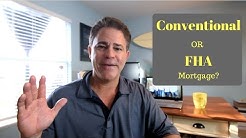which is better fha or conventional loan
An FHA-insured loan is a conventional mortgage loan through an. branch or credit union, as you are likely to secure better terms as an established customer.
To project the size of Loan Servicing Market, with respect to key regions, type [, Conventional Loans, Conforming Loans, FHA.
The Conventional Mortgage and its Benefits. The conventional loan is the standard 30-year, fixed-rate mortgage. Its primary advantage is the predictability of its payments. conventional loan lenders follow the underwriting guidelines of Fannie Mae and Freddie Mac and, as such, typically require good-to-excellent credit, sufficient income,
The good thing about some HELOC loans is that they offer the best of both worlds, allowing you to lock in a portion of what you’ve borrowed at a fixed interest rate and to draw upon a line of credit.
refinance conventional loan to fha So, a Fannie Mae or Freddie Mac conventional loan is a possible refinance option for fha loans. conventional loans will lend up to 97% of the appraised value. Yes, more than FHA! Therefore, a lot of equity is not required for a conventional refinance. After that, FHA to conventional loan refinance levels are 95%, 90%, 85%, and 80% or less.Pmi Meaning Mortgage Mortgage insurance is exactly what it sounds like – it insures your mortgage. If you default on your mortgage or fail to pay it back to the lender, your lender (and the secondary mortgage market that likely purchased the loan from them) have some protection against that loss.30 Year Fixed Fha Mortgage Rate The APR for a 30-year and 15-year conventional fixed-rate mortgage loans are calculated using a loan amount of $417,000, two points, a $495 application fee, $400 appraisal fee, $995 underwriting fee, a $10 flood certification fee, and a $20 credit report fee.* 15-year conventional mortgage rates are calculated with a 15-year loan term.*
If you’ve saved less than the ideal downpayment of 20%, or your credit score isn’t high enough for you to qualify for a fixed-rate or ARM with a conventional lender, consider a government-backed loan.
A good credit score to buy a house is at least 620. Mortgage lenders will also consider your debt-to-income ratio when you.
The answer to the question of which mortgage type is better for you depends on your situation as a home buyer. Federal Housing Authority, FHA, loans and conventional loans have distinct benefits and drawbacks that make them more or less appealing.
To obtain a loan from a typical bank, you will have to meet a number of rigorous criteria, including positive credit history.
On an FHA loan, two types are required: upfront and annual. Conventional loans typically only require annual, which saves buyers the 1.75% of the base loan amount cost at the outset of the loan. Furthermore, FHA requires you to keep the insurance longer than conventional loans.
Conventional loans are provided by lenders who are not insured by the FHA. These mortgages have an added risk, and therefore require higher down.
 · FHA loans consider the financial strength of all parties on the loan, both occupying borrowers and non-occupying cosigners, under a single DTI. Cosigners will work much better with FHA loans. In many conventional situations, they won’t help at all. If you can qualify, a conventional loan will probably cost you less
· FHA loans consider the financial strength of all parties on the loan, both occupying borrowers and non-occupying cosigners, under a single DTI. Cosigners will work much better with FHA loans. In many conventional situations, they won’t help at all. If you can qualify, a conventional loan will probably cost you less
Conventional Mortgage Payment Calculator Conventional Mortgage Payment Calculator A conventional mortgage loan is generally considered a mortgage loan that meets guidelines established by Fannie Mae and/or freddie mac. calculate an accurate payment that accounts for various down payments, property taxes, and homeowner’s insurance.